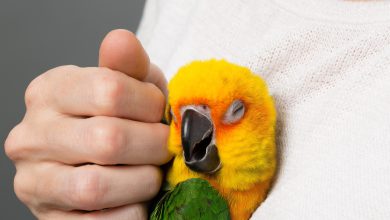Understanding Persian Cat Behavior: The Calm and Gentle Feline Companion

Persian cats are beloved for their luxurious fur, expressive eyes, and sweet-natured personality. Known for their calm demeanor, these cats are gentle, affectionate, and make wonderful indoor companions. Here’s a closer look at common Persian cat behaviors and what to expect when bringing one into your home.
Common Persian Cat Behaviors
- Calm and Relaxed Nature
- Low-Energy Lifestyle: Persian cats are laid-back and prefer a calm environment. They aren’t as active or playful as some other breeds, and they’ll often be found lounging in their favorite cozy spots around the house.
- Affectionate and Loving
- Enjoying Close Company: Persian cats bond closely with their owners and enjoy gentle affection. While they may not be overly demanding of attention, they do enjoy being near their humans and will often sit beside you rather than on your lap.
- Quiet and Soft-Spoken
- Soft, Melodious Meows: Persian cats have quiet, sweet voices and rarely meow loudly. They may vocalize softly when they need something or are in a particularly affectionate mood, but they are generally one of the quieter cat breeds.
- Gentle Playfulness
- Low-Key Interaction: Persians enjoy a bit of gentle playtime, but they don’t tend to engage in vigorous or energetic play. Simple games like batting at a toy or chasing a feather wand for short sessions are typically enough to satisfy them.
- Sensitive to Changes
- Preferring Routine and Stability: Persian cats thrive in predictable environments and can be sensitive to disruptions. They may feel stressed with changes in their routine, new people, or pets, preferring a stable, calm household.
- Attention to Grooming Needs
- Appreciative of Regular Grooming: Due to their thick, long coats, Persian cats benefit from regular grooming, which they often tolerate well, especially if started early. This daily grooming routine can also strengthen the bond between you and your cat.
Interpreting Persian Cat Body Language
- Purring and Kneading: When a Persian cat is content, you’ll often hear a gentle purr and see them kneading with their paws, a common way cats express comfort.
- Slow Blinking: This is a sign of affection and trust. If a Persian slowly blinks at you, it’s a good indication they’re comfortable and happy.
- Relaxed Body and Half-Closed Eyes: A calm, relaxed Persian cat may have their body stretched out, often with paws tucked beneath them and eyes half-closed, indicating they feel safe.
Behavioral Challenges and Tips
- Sensitivity to Stress
- Maintaining a Calm Environment: Persian cats can become anxious in loud or chaotic settings. Keeping their environment calm and maintaining a routine helps reduce stress. If you’re moving or making big changes, give your Persian cat a quiet, familiar space to retreat to.
- Limited Playfulness
- Engage in Gentle Play: Though not high-energy, Persian cats do appreciate playtime, especially if it’s calm and low-energy. Try interactive toys like feather wands or toys they can bat at to satisfy their curiosity.
- Routine Grooming Requirements
- Daily Grooming for Health and Bonding: Persian cats have high grooming needs to keep their long coats tangle-free. Regular grooming can also help build trust and affection as they come to enjoy the process as part of your shared routine.
- Health-Related Sensitivities
- Understanding Brachycephalic Traits: Persian cats have flat faces, which can lead to breathing sensitivities, especially in warm weather. Monitor their health, avoid excessive heat, and check with a vet if you notice any respiratory issues.
Tips for a Happy Persian Cat
- Provide Cozy Spots
- Persians love to relax in comfortable, soft areas, such as padded beds, blankets, or even a sunny spot by the window. Giving them a few designated cozy areas can make them feel secure and happy.
- Engage in Gentle Social Interaction
- Persians enjoy gentle petting and calm interactions with their owners. They’re not typically fans of rough play or noisy environments, so spending quiet time together is ideal.
- Offer Regular Grooming and Attention
- Regular brushing keeps their coats healthy and helps prevent matting, which can be uncomfortable for them. Make grooming sessions a positive experience by rewarding them with treats or gentle praise.
Conclusion
Persian cats are known for their affectionate, laid-back nature, making them wonderful companions for a quiet household. They may be sensitive and require extra grooming attention, but their sweet disposition and loyalty make the effort worthwhile. With their unique personality and beautiful, serene presence, Persian cats bring a sense of calm and joy to any home they’re part of.



